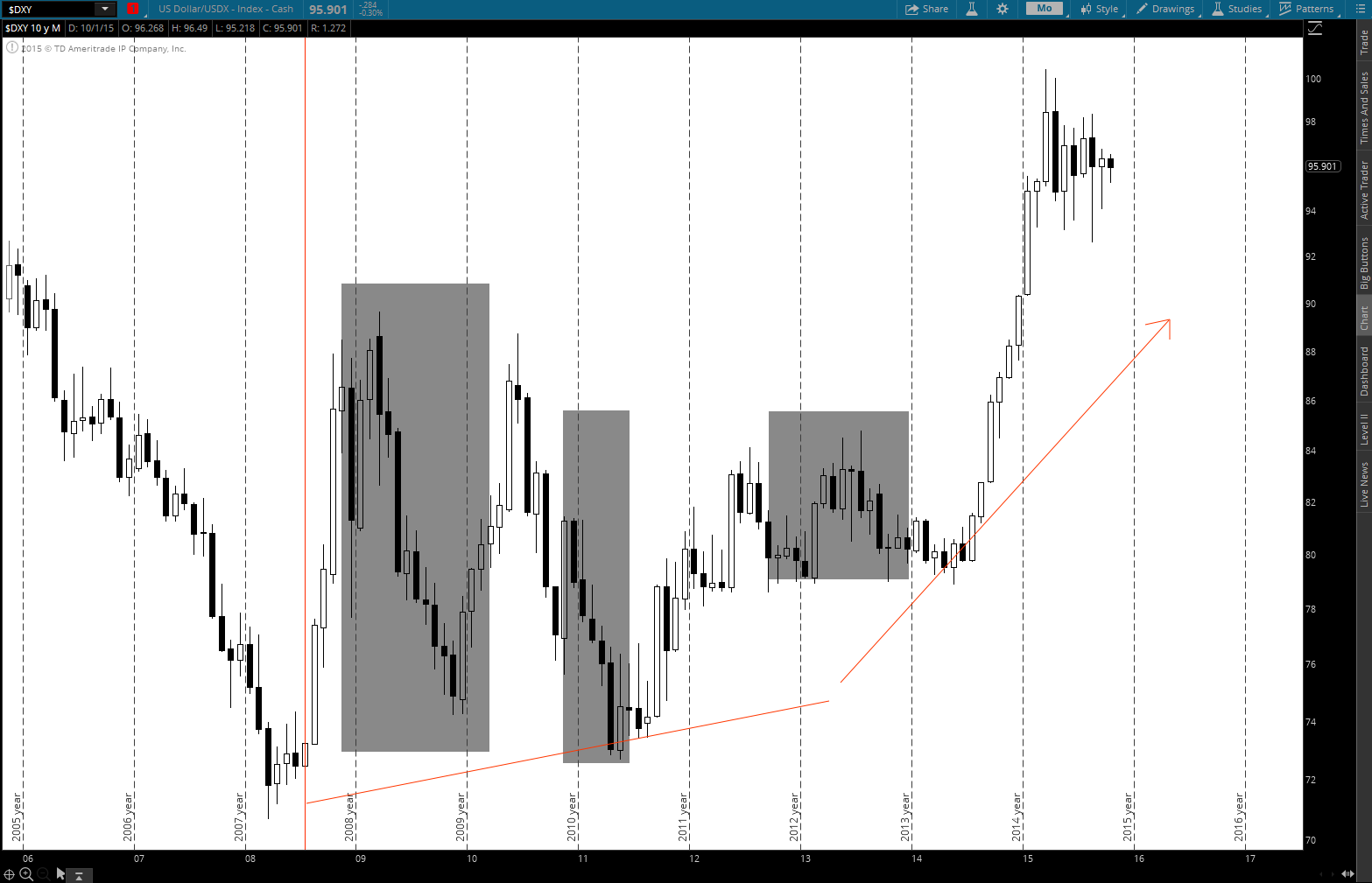I’ll preface this post by saying that this is a long one (sorry about that) but it’s worth the time. To continue on the post from earlier this week where I mentioned that the best long-term investment opportunities typically come with short-term volatility, I’d like to outline my long-term view on how the world, global…
Should I Be Bothered by Drops in the Stock Market?
It all depends. As a long-term investor, which most people are, you shouldn’t necessarily worry about short-term volatility. The best long-term investments come with the baggage of short-term volatility, that’s just the way it is. This is where proper diversification and strategies like allocating “buckets” of money for retirement spending come into play so one…
Liquidation is Spreading
Ever since Janet Yellen finally admitted last week that the global economy does matter, we’ve seen the deflationary-based selling spread to additional sectors, not just energy and metals as it was earlier this year. Anything sensitive to China and/or the global economy – like industrials, materials, transports, Emerging Markets, etc. – is being thrown out…
“Phase 3” Right Around the Corner for Stocks
For those of you that read my latest letter to clients (which I’m sure everyone did…but if you haven’t had a chance yet, you can find it here), the S&P 500 is about to enter what I consider “Phase 3”. This means it’s time to aggressively hedge/reduce stock risk. I spent a good bit of…
How the Economic Machine Works
Here’s a video made by Ray Dalio two years ago to help explain in very simple terms how the economic system actually works. It’s a half hour long but well worth the time if you’d like a better understanding of the current economic issues the world faces. Ray Dalio is head of Bridgewater Associates, a manager…
Why the Stock Market Dropped So Sharply
Two words – “The Fed.” The two primary goals of the Federal Reserve’s Quantitative Easing efforts over the past few years were to inflate asset prices (stocks, real estate, etc.) and lower interest rates. They call this the “wealth effect.” In theory, they think that higher asset prices will increase confidence, which will increase spending, business…
Market Updates
Well that was exciting! Please keep in mind that, as a long-term investor, what matters is the earnings power and yield of the companies in which you are invested. Just because the price of a stock drops doesn’t mean that the underlying company is deteriorating – it simply means you have the chance to buy…
What China’s Currency Devaluation Means for Markets
Risk assets across the board are trading lower today after China devalued their currency, the renminbi (or “yuan” as it’s referred to in international context), overnight by 1.9%. China currently maintains a peg to the US dollar in order to keep the exchange rate in a very tight band. They do this by intervening each…


